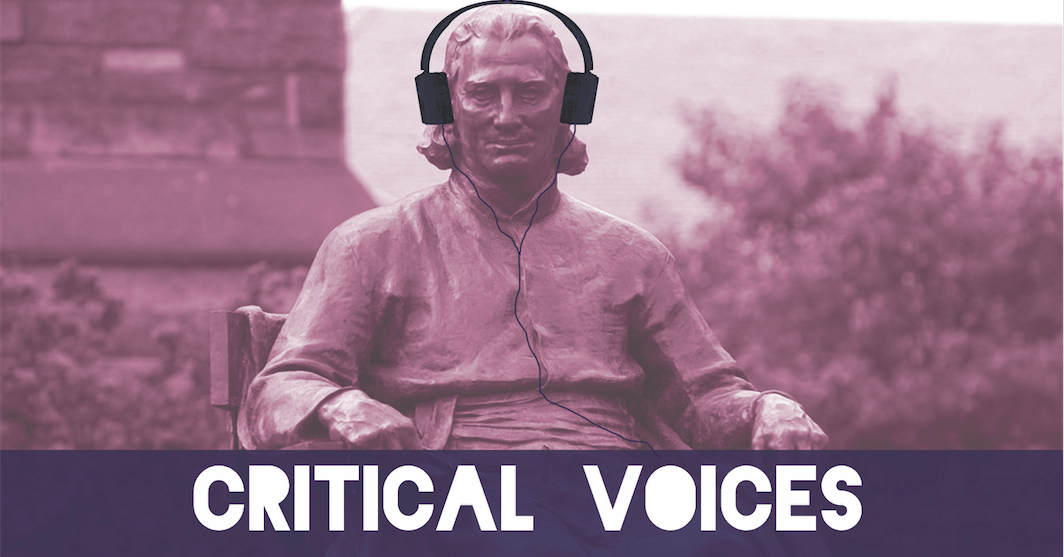In the leadup to the release of JPEGMAFIA’s third studio album, All My Heroes Are Cornballs, the Baltimore-based rapper released a series of mock promotional interviews in which he plays his new album to celebrities and films their sarcastic disapproval of his new sound. This serves to not only introduce the listener to the multi-layered irony present in JPEG’s music, but also to showcase his wide variety of influences: from electro-pop singer James Blake to soft indie-rocker Jeff Tweedy of Wilco. JPEG even got his fans in on the bit, tweeting “disappointment STILL INBOUND. DO NOT BELIEVE THE HYPE.” Ultimately, the buildup was worth it. All My Heroes Are Cornballs subverts expectations while building on his distinctive musical style, providing a candidate for one of the best hip-hop albums of the year.
JPEG fans had high hopes for this album for a reason. His 2018 album Veteran was featured on numerous best-of lists and he was invited to perform at some of the largest American music festivals, including Coachella and Pitchfork. Veteran is aptly named—JPEG served more than ten years in the military, an experience which informs his music’s dark, political themes. After he was honorably discharged in 2015, he moved to Baltimore and began making music full-time, starting with his 2016 release “Black Ben Carson.” JPEG’s first two albums combined glitchy, sample-heavy production with disturbing modern themes and screamed lyrics. One track on Veteran is titled “Williamsburg,” mocking white gentrifiers. Another is “I Cannot Fucking Wait Til Morrissey Dies,” conveying JPEG’s distaste for the controversial former Smiths frontman.
In his new project, JPEG’s lyrics are just as profound and angry, but his music has taken a sonic shift. The first moments of the opening track, “Jesus Forgive Me, I Am A Thot,” picks up where Veteran left off, beginning with the sound of screaming and broken glass. Then, the song takes an unexpected turn: over a groovy synth, JPEG breaks out his auto-tuned singing voice. Moments later, in the same song, he reverts to scream-rapping, expressing his annoyance at both his online haters and the criminal justice system. It is in these quick, genre-bending transitions that JPEG’s idiosyncrasies shine.
JPEG escapes the rap trope of wealth-based braggadocio, opting to be self-aware and endlessly referential in his lyrics instead. The album’s second track, “Kenan Vs. Kel,” is named after a 90s Nickelodeon sitcom. In quick succession, he makes mention of Kanye West, Mario Kart, the Rolling Stones, and the Jak and Daxter video game franchise. His affection for pop culture doesn’t make his lyrics any less meaningful. A few tracks later, on “PTSD,” JPEG raps about mental illness and violence. On “Free the Frail,” one of the highlights of the album, he takes on toxic masculinity. “I’m not no alpha male, I’m Carly Rae, you Braden Walker,” raps JPEG, comparing the “Call Me Maybe” singer to a retired WWE wrestler.
JPEG’s lyrics are his strong suit, but on All My Heroes, he can at times be repetitive. On nearly every song, he mentions that he does not care about what people on Twitter are saying about him, to the point where it makes one wonder if he actually does care, if only a little bit. “Say what you said on Twitter right now,” he raps on “Beta Male Strategies,” “You only brave with a board and a mouse.” Even if he touches on the theme often, it underscores an important message in escaping the constant vitriol and abuse of social media.
On All My Heroes, JPEG proves his prowess on both sides of the microphone, as he also produced every song on the album. “BUTTERMILK JESUS TYPE BEAT,” the penultimate song on the album, features minimal vocals. It is a testament to JPEG’s instrumental abilities, with looped drums and a spacey piano riff throughout. In this age of hip-hop, it’s refreshing to see an all-in-one artist. By contrast, Sicko Mode, one of the biggest rap hits of 2018, featured 30 different songwriters. In producing, writing, and rapping on his songs, JPEG is able to create emotional continuity not present in most other modern popular music.
JPEG closes out the album with “Papi I Missed You,” questioning his fame and where he goes from here. “Are you mad ‘cause you see me up in your Whole Foods?” he raps, acknowledging the irony of a rapper becoming rich off of lyrics critiquing the socioeconomic divides in America. It’s a paradoxical image—an artist known for aggressive music in the most suburban, gentrified store imaginable—and serves as one of the many contradictions on All My Heroes. JPEG pushes boundaries both lyrically and musically, juxtaposing angry political messages with calm, electronic beats. The end result is a well-crafted album that challenges the listener’s preconceptions about pop culture, social media, and even JPEG himself.






